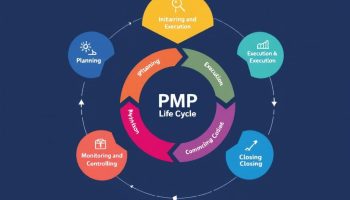As a business owner, you might think what is the difference between strategic and operational planning. Basically, these are the time frame in which the plans take place. While this may be true, it’s not the only difference.
The importance of strategic and operational planning in business cannot be overstated. Operational planners tend to be more tactical in nature, while strategists may have less emphasis on tactics and more on vision. The two processes are interconnected, with one affecting the other.
For instance, if a company has an aggressive goal for growth that exceeds its capacity, then operations would need to change or grow so that they can support this new strategy.
This blog post will explore the differences in detail so you can decide which type of plan would be best for your business needs.
What is the Strategic Planning?
A strategic planning process is a systematic approach to developing and implementing an organization’s strategy. It is a dynamic process that begins with the identification of an organization’s goals, objectives, and aspirations.
The process includes analysis, goal-setting, and future planning. Strategic planning is a long-term strategy that the organization’s top management or senior leadership team implement. The major roles of this group are setting goals for the company, developing strategies that will help achieve those goals, evaluating progress made towards achieving them, etc.
How to do Strategic Planning:
Strategic Planning includes five stages – visioning, analysis, decision making, implementation, and evaluation.
The first stage of the process is Visioning which involves setting goals for what you want your company or organization to look like in the future.
The analysis is the second stage where you take time to think about how best to achieve your goals.
Decision-making is next where you make decisions on how to move forward with your plans based on information gathered during analysis.
Implementation occurs when all decisions are put into place and work begins on achieving those objectives.
Finally, Evaluation takes place at the end of each stage to assess how things are going and if they need changes.
Benefits of Strategic Planning:
Strategic planning is a process for achieving your goals. It requires you to plan ahead, identify what resources are needed, and execute the appropriate strategies to achieve your desired outcomes. But why should you bother?
Here are just a few of the benefits of strategic planning:
Better allocation of time and money towards projects that will give you the most payoff.
- Reduce the risks associated with making mistakes.
- Help organizations design a complete blueprint for their future.
- More control over the progress of different aspects of the organization.
- Less stressed because there’s no guessing about what needs to happen.
- Help the organization to stay competitive, and providing guidance when making decisions.
What is the Operational Planning?
Operational planning is the process of implementing a strategic plan that has been developed by decision-makers. Operational planners start with mapping out a timeline for a project, carrying out specific tasks, or both.
It consists of determining how to accomplish an organization’s objectives and meet its goals. This planning also involves setting up the necessary structures, systems, people, and resources required to implement it all. An organization needs operational plans when there can be no slip-ups or flexibility in execution; if something fails then everything fails too.
How to do Operational Planning:
Operational plans can vary depending on the size and complexity of a company or organization. Many small businesses only need to plan out their day-to-day activities. However, larger organizations develop more comprehensive plans that cover longer periods and may consist of many smaller project plans within them.
Companies should begin by developing clear goals for what they want to achieve; it will use as guidelines during the operations planning stage.
Next, you define strategies with specific action steps listed in order to meet those objectives. It includes who is responsible for each step and how deadlines are going to be met.
Finally, operational planners create an overall timeline along with milestones so all team members know when key deliverables are expected from one another. Then you go into action!
Benefits of Operational Planning:
Operational planning is usually smaller in scope and easier to implement. It is more tactical, while Strategic Planning is strategic. Operational Plans should be a part of the larger Strategic Plan so that they mesh together well with your goals and values.
Here are some of the benefits of operation planning;
- Helps businesses achieve short-term goals.
- Contribute to the big picture goal of the business.
- Helps you accomplish your strategic plan.
- Less time-consuming and needs fewer resources to develop.
- Help take your business to a whole new level.
- Map out a timeline for a project, carry out specific tasks, or both.
Difference between Strategic and Operational planning:
Operational and strategic planning may seem like the same thing, but they are actually very different. Both of these Planning are two different types of plans.
Operational planning looks at the immediate future, while strategic planning looks at a span of years into the future.
Operational planners tend to be more tactical in nature, while strategists may have less emphasis on tactics and more on vision.
Strategic planning is the process for determining what a company wants to accomplish in the future, while operational planning is how it plans to achieve these goals.
Operational planners focus on day-to-day tasks. While strategic planners pay attention to macro issues such as market trends and technological developments.
Operational planners rely heavily on data from past performances for their forecasts. While strategists may use some data from past performance, but also include qualitative factors such as new product introductions or changes in consumer behavior that impact business models going forward.
Operational planning is a more tactical process that comes into play on a regular basis to make sure that you complete all the tasks. Strategic planning takes place over the course of weeks or months and looks at what you want your company’s long-term goals to be.
Conclusion:
The idea of strategic and operational planning may seem like an easy distinction to make, but it is not always so clear. Strategic plans are typically general in nature, while operational plans are more detailed.
The key difference between the two types of plans is that strategic ones are long-range goals for your company or organization whereas operational plans take into account short-term goals to help you achieve these over a specific time frame.






